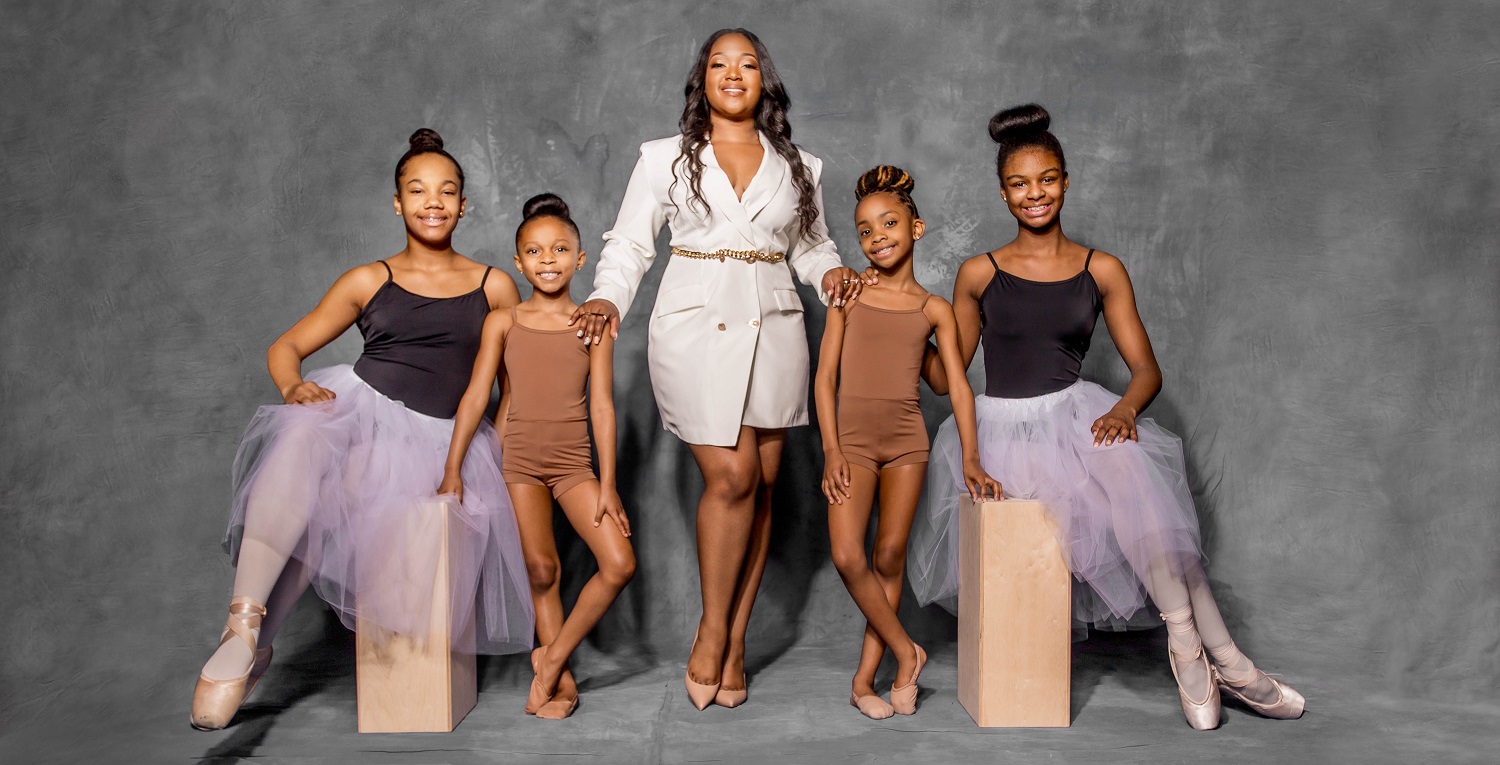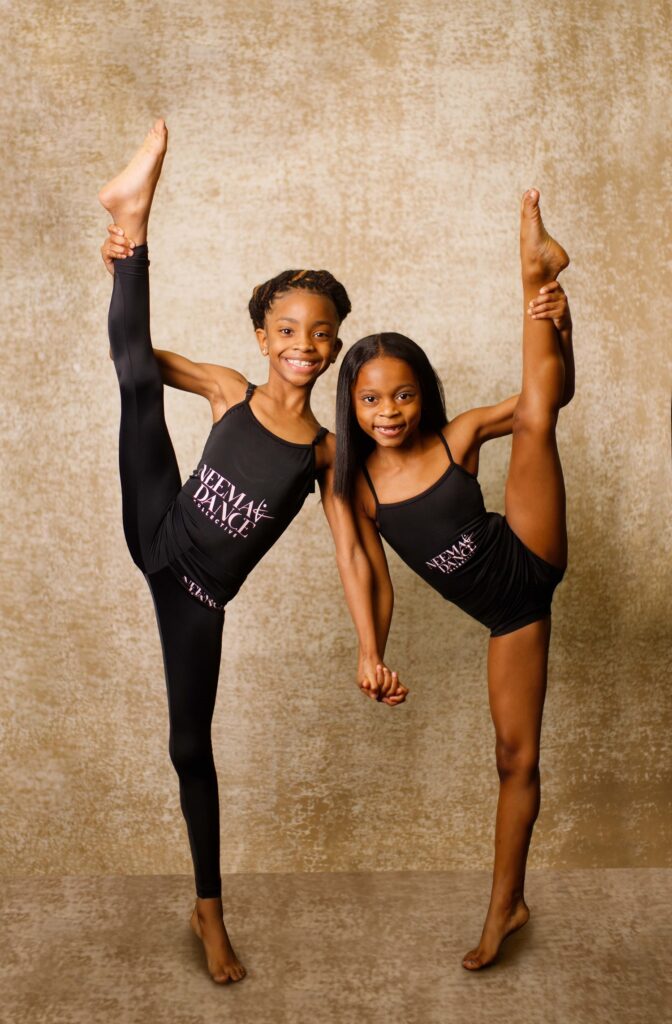D.C. Dance Studio Offers Black Children Normalcy During Pandemic

Grace Johnson had just started a new dance studio when the COVID-19 pandemic flipped the world upside down.
With nearly 30 years of dance experience, the Maryland mother of two thought having her own company was a natural progression in her career.
She started Neema Dance Collective in 2016, creating a space for young Black dancers in the DMV area to receive classical dance training. She opened her own studio in Temple Hills, Maryland, in 2019.
Not long after the Neema opened its doors did the pandemic force Johnson to pivot in order to retain community engagement.
“We were on the brink of exploding when the pandemic hit,” said Johnson, whose experience includes The Ailey School Summer Intensive Program and The Debbie Allen Dance Academy. “I started with seven kids, and we were almost at 90. We had a big surge, a big growth spurt. We had to shut down operations. However, we did what everybody else did for the most part and went right to an online platform.”
Johnson adopted Zoom classes to preserve her young business.
But in the midst of the madness of COVID-19, she discovered the potential for something greater. See, the pandemic afflicted children’s mental health as much as adults.
It forced them into a world of isolation, where they were away from friends, school and overall normalcy.
Johnson would redirect some of her efforts to ensure that through dance, children maintained a sense of balance during the peak of COVID-19.
“One thing they know is the studio has to blow up in order for us not to have class, so the kids looked forward to their Wednesdays, it’s acrobatics. Mondays, it’s ballet,” Johnson said. “They knew whether we were on the screen or in person that they had a schedule they were accustomed to.
“They look forward to having that freedom.”
Positive Emotional Effects of Dance
Dance class at NDC is more than an extracurricular activity. The emotional release of dance greatly benefits mental health.
Dance is known to improve your mood while also boosting your confidence and compassion.
And Johnson enjoys a front-row seat to her students’ freedom of expression.
Dance is freedom to express, be themselves and have the spotlight for a moment.
Grace Johnson, Owner of Neema Dance COllective
“Some kids come from homes that are rigid,” she said. “Dance is freedom to express, be themselves and have the spotlight for a moment. Some kids come from big homes and they’re the only one that dances.”
Her studio is also home to children who have emotional or behavioral issues at school. When they walk through her doors, she says, they do just fine.
Neema welcomes dancers of all backgrounds, but Johnson is particularly proud of the opportunity her studio presents to little brown dancers.
“It’s such a necessity for me,” she said about having such representation. “I feel like Black dancers deserve a special place in the artform of dance.”

While Johnson grew up studying in spaces where Black dance was prominent, these opportunities weren’t exactly in her backyard. It means a little more to her to have a company in her hometown.
“At home, I was like, I have to feature my Black kids now,” the artistic director and choreographer said. “I do have kids that are of other races and creeds and colors, and they’re fine. They fit right in. They get acclimated to our culture, but specifically for Black dancers, I wanted them to display that we’re more than just Hip-Hop dancers. We’re more than just backflips and putting on a show.
“We have classical ballet training here, and that is the thing that kind of pushes Neema forward.”
All students relish the structure of NDC, which features a well-rounded, versatile curriculum from tap and ballet to African dance.
But there are two little girls who may find it just a bit more special: Johnson’s daughters.
Motherhood and Dance
Some days, her 12-year-old will help out at the door. She’ll sanitize hands and check students into their program.
Other days, Johnson’s 5-year-old may be in class with her mom as an instructor.
Johnson tries not to interfere, but sometimes, the schedule falls that way.
The best part of having her two daughters involved in Neema is that she didn’t have to force them; they had their own interest in dance.
It takes a balancing act to run your own studio and be a mother, but Johnson is grateful her daughters’ motivation for dance and business makes it a bit more seamless.
“I love integrating them into the business and still being able to be a mom while having them around,” she said. “They want to be around.”
